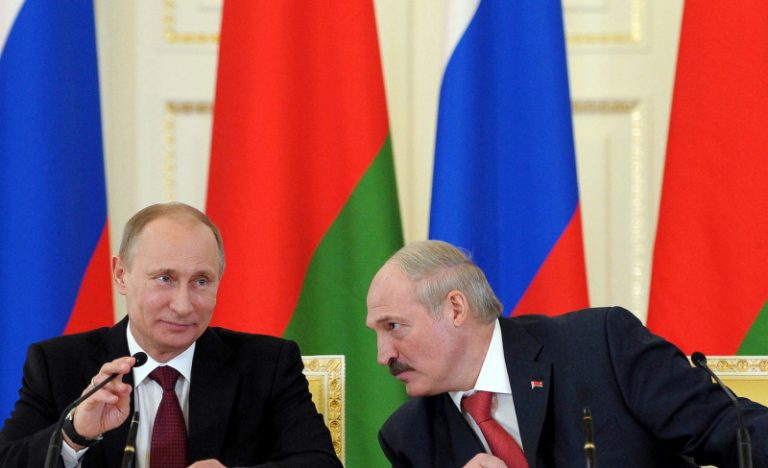By reviving the issue of the practical creation of the Union State of Russia and Belarus with common authorities, a single currency and economic space the Kremlin tries to trick with Alexander Lukashenko. The issue is negotiated against the backdrop of attempts to make economic agreements where the price of petroleum products for Belarus and control over the Belarusian-Russian border are in the main focus.
Belarus Ambassador to Russia Vladimir Semashko stated that a preliminary agreement to create a unified parliament and the government of the Union State had been reached between Vladimir Putin and Alexander Lukashenko. This is far from the first statement regarding the strengthening of the political integration of Minsk and the Russian Federation. However, the agreements have not been implemented practically.
The meeting of Vladimir Putin and Alexander Lukashenko was planned for December 8 but the meeting was postponed. As a result, the level of the meeting was lowered. On December 6, Russian Prime Minister Dmitry Medvedev will meet with his Belarusian counterpart Sergei Rumas.
The negotiations on political integration are taking place against the backdrop of attempts to make economic agreements between the countries. The key areas of concern here are Russian energy supplies’ price for Belarus and control of the Belarusian-Russian border by the Russian security forces.
The main point of Moscow’s position is to expand political integration in exchange for maintaining economic preferences for Minsk, or cutting indirect subsidies to Belarus. At the same time, Lukashenko’s position is aimed at preserving economic preferences, in particular, reducing oil price for Belarus with no political integration negotiated. However, as of November, a significant number of roadmaps provided for by the economic integration program of the two countries have not been agreed upon yet (16 of 31). The main problematic sectors are agriculture, tax legislation and energy.
Along with that Lukashenko is trying to build alternative geo-economic relations that are supposed to reduce dependence on Russia. In late October, Kazakhstan and Belarus reached an agreement on oil supplies but the agreement has not been signed yet. It should be noted that the Russian Federation is well positioned to block energy supplies; however, this would jeopardize the concept of the EAEU.
In the meantime Belarus keeps enhancing its relations with China. By 2018, the volume of investments from China increased 4.8 times in comparison with 2010 and reached $339.9 million (the share of direct investments on gross basis is 55.0%). Besides Russia and Cyprus, China has become the third country on net FDI in the Republic of Belarus.
Lukashenko is making every effort to legitimize his power after 2020, the year the Belarus presidential elections to be held. The elections held calm and peacefully is crucial for the regime. It is worth reminding that in November of this year the early parliamentary elections were held in Belarus. These elections were necessary in the context of retaining Lukashenko’s control over the legislative body before the presidential election.During the pre-election period Lukashenko is considering the possibility of the Russian Federation’s attempt to destabilize the country’s political situation in case of no progress on the agreements between Moscow and Minsk is reached. Taking into account the reality his current position will lie in dragging out time against the backdrop of high-profile statements without a practical result. The issue of the Union State creation will de facto be on the agenda in 2020 in case Lukashenko’s re-election as the President of the Republic of Belarus.




